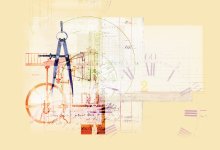Assessment
Look beyond high-stakes testing to learn about different ways of assessing the full range of student ability—social, emotional, and academic achievement.
Using Skills to Grade Proficiency in Science
Proficiency scales provide an excellent way to evaluate students on their scientific knowledge and skills.412Creative Ways to Demonstrate Learning
Competency-based assessment allows students the freedom to develop creative expressions of their learning.Why the 100-Point Grading Scale Is a Stacked Deck
What to do about a 100-point grading system with a troubling history—and inherent flaws that carry over into the present day.6.5kThe Case Against Zeros in Grading
Teachers can rethink their grading practices to make them more mathematically fair for students and allow for redemption for a missed assignment.31.4k13 Formative Assessments That Inspire Creativity
Sometimes mixing in formative assessments that go a step beyond exit slips and low-stakes quizzes can inject some fun—and creativity—into learning.4.1k7 Smart, Fast Ways to Do Formative Assessment
Within these methods you’ll find close to 40 tools and tricks for finding out what your students know while they’re still learning.61.5kA Restorative Approach to Grading
A fresh approach to promoting equity in grading can lead to stronger relationships with students and deeper learning in the classroom.353The 10 Most Significant Education Studies of 2020
We reviewed hundreds of educational studies in 2020 and then highlighted 10 of the most significant—covering topics from virtual learning to the reading wars and the decline of standardized tests.23.7k8 Quick Checks for Understanding
Formative assessment is a proven technique for improving student learning, and the strategies shared here by Jay McTighe work both in the classroom and remotely.15.6kUsing Test Corrections as a Learning Tool
Assigning corrections as classwork and then retesting students allows a teacher to accurately assess if they have mastered the material.2.9kThe Spatially Gifted—Our Future Architects and Engineers—Are Being Overlooked
Though they have the potential to excel in many fields, we’re neglecting a large body of students with a unique set of skills.15.1kEffective Strategies for Math Teachers During Testing Season
A slow and considered approach to math instruction helps students comprehend what they need to know when they take a standardized test.4277 Ways to Build a Learner-Centered Classroom
Teachers can create positive learning experiences for students that combine assessment with agency, opportunity, and community building.3.2k7 Ways to Do Formative Assessments in Your Virtual Classroom
Finding out what your students are really learning remains indispensable to teaching. Here’s what teachers are doing to check for understanding online.14.5kHow to Help Students Focus on What They’re Learning, Not the Grade
Work that emphasizes students’ developing skills instead of a graded product reminds them to see learning as their goal.13.2k














